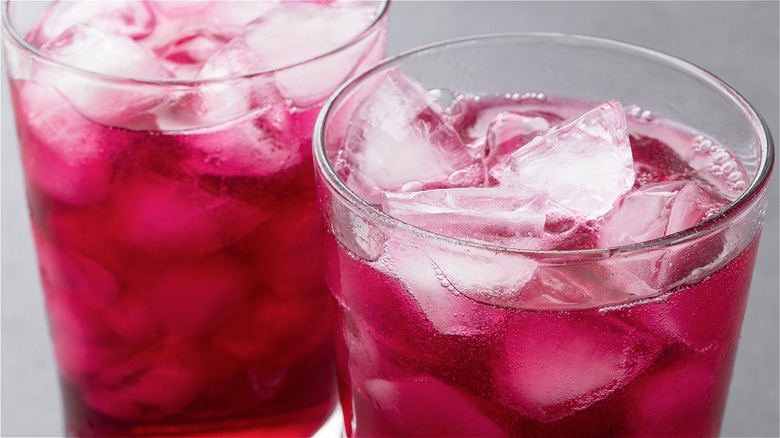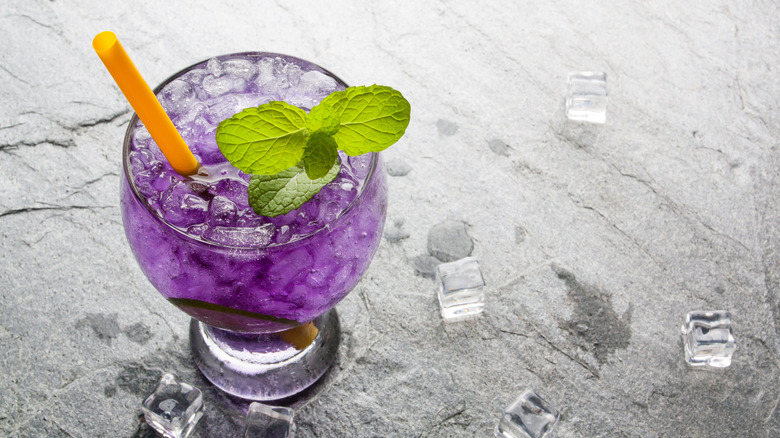What Exactly Is In Grape Soda?
When it comes to beverages, there are few that spark a greater sense of nostalgia than flavored sodas. Grape soda, in particular, brings many people back to the '90s when pulling a can of Crush, Faygo, Sunkist, or Fanta out of your lunchbox was a flex. The combination of the part-sweet, part-tangy flavor, the refreshing effervescence, and of course, the bright purple hue made every sip oh-so-satisfying. You could even pour a dash of it over a couple of scoops of vanilla ice cream to indulge in a purple cow float!
Grape soda as we know it first hit the market in 1940. An Arkansas man named Benjamin Tyndale Fooks whipped up the first batch of Grapette, which was one of the best-selling soft drinks for decades, according to the Arkansas Democrat-Gazette. Walmart eventually ended up purchasing the brand, bringing memories flooding back via taste buds.
However, many grape sodas throughout history have been made with artificial grape flavor. How does this imitation grape additive affect the product so many people associate with innocence?
Not all grape soda contains real grapes
Most grape sodas, along with various grape-inspired products, call for a chemical called methyl anthranilate (MANT), which exudes the iconic scent and flavor. The slight issue with the stuff? The ingredient contains petroleum, according to the Proceedings of the National Academy of Sciences. MANT is also an effective bird repellent and can be found in some sunscreens. Yeah, not grape — er, great ...
However, a handful of brands stand by the fact that they do, in fact, use real grape juice in their purple products. Milwaukee-based Sprecher Brewing Company, for one, explains that its founder and namesake, Randy Sprecher, was insistent on creating a grade soda with authentic ingredients. To this day, the company's grape pop has remained the same.
Olipop, the soda-inspired "sparkling tonic" that promotes a slew of health benefits, is also breaking the mold when it comes to refusing to mess with artificial fruit flavors. Olipop Classic Grape contains a blend of Concord grape juice concentrate, plus lime juice, apple juice concentrate, and tartaric acid, a natural substance found in grapes, apples, cherries, pineapples, and citruses, according to "Encylopedia of Food Microbiology" (via ScienceDirect).

